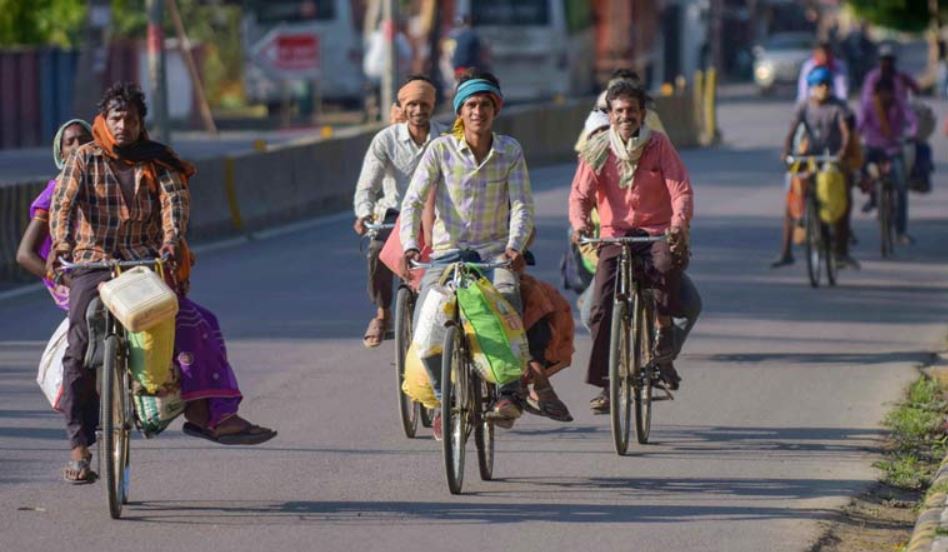
Animay Singh
Biography

The Inter-State Migrant Workers Act, 1979 is a central legislation that governs the hiring, registration and payment of wages in relation to the aforementioned class of workers. It provides for equal wages for similar nature of work, displacement allowance and journey allowance for inter-state workers. It also grants the right to raise disputes under the Industrial Disputes Act, 1947. Principal employers/contractors are required to maintain registers and facilitate the grant of benefits.
The Problem
Based on the above, you might wonder why the migrant workers in our country are undergoing their current plight. The primary reason for this is that labour being a concurrent subject, State governments are responsible for bringing the related into effect. Most State governments have introduced their own amendments to the above act and the enforcement mechanisms for the same have been unsatisfactory.
The effect of the lack of enforcement is that there has been no generation of data in relation to the number of such workmen, the nature of their work, the wages they are drawing etc. With labour reforms pushing for digitization, this is another aspect that needs to be examined. There have been a negligible number of cases filed under the Act largely due to the fact that such workers are impoverished and lack the funds to get engaged in litigation. This, coupled with the procedural difficulties and the inevitable language barrier makes filing cases almost impossible for aggrieved parties. Thus the question arises, where can potential reform come from and has it already been proposed?
Occupational Safety, Health and Working Conditions Code, 2019
This legislation aims to consolidate thirteen laws that regulate health, safety and adequate working conditions ranging from factories, mines, dock workers, contract labour, inter-state migrant workers and more. The bill was introduced in the Lok Sabha on July 23rd 2019 and was placed before the Standing Committee on Labour which submitted its report on February 11th, 2020. However, it has not been passed and therefore has no effect in law.
The original text of the bill provides special provision for contract labour and inter-state migrant workers under Chapter-XI. It applies to every establishment in which twenty or more contract labour are employed or were employed on any day of the preceding twelve months and contractors who have employed twenty or more contract labour in the same timeframe. The bill makes it the duty of every employer employing such workers to provide suitable conditions of work, residential accommodation during the period of employment and free medical facilities/examination.
The report sheds light on the proposed changes to the bill and how it might look in its final form. The primary takeaways from the report are as follows:
The first key highlight is the creation of a centralized database for such workers coupled with online and deemed registration. Another important development is the treatment of inter-state migrant workers as contract labour so as to make them eligible for all the benefits that accrue from that status. There is also a proposal to allow migrant workers to be employed directly besides through contractors which effectively allows principal employers to ‘cut out the middleman’.
The bill in its original form contains no exclusive chapter on inter-state migrant workers. However, the parliamentary committee’s report recommends that a separate and exclusive chapter on migrant workers should be included in addition to the special provisions that are already present. This recommendation is based on the unanimous views of the State Governments on the inclusion and the positive response of the Ministry to the same.
The Kerala Model
The State has adopted progressive policies as far as migrant workers are concerned, using the term ‘guest workers’ as opposed to migrant labourers. The Kerala Migrant Workers Welfare Scheme, 2010 for example provided fiscal support to migrants for treatment of injuries/ailments, their children’s education in the State as well as termination benefits for migrants who complete five years of work. The membership fee for the scheme was set at a nominal Rs. 30 per year when the scheme was announced and so far approximately four lakh workers have registered for the scheme. The State has also provided pamphlets/copies of the notifications in Hindi and has introduced volunteers under the State Literacy Programme to ensure that the language barrier is bridged.
Even in the midst of the COVID-19 pandemic more than 3.5 lakh ‘guest workers’ have been accommodated by the Government in camps where their basic needs like potable water and food are met. The Government is also raising awareness with regards to hygiene and social distancing in the vernacular of the migrant workers.
From the above it is clear that reform is on the horizon, the question is whether it will come soon enough for India’s burdened migrant labourers. Do you think the above reforms are adequate? Is the Kerala model one that can be replicated on a national level?
Drop your thoughts in the comments below.

Today its migrant workers, tomorrow it will be construction workers and then some day it will mine workers. I think the real problem is not that we need more or less complex laws. Whats needed is that goverment authorities enforce and audit the companies in a online manner instead of the current burden of physical inspections. Because the physicall inspection and auditing is difficult, nobody does it and hence employers get away with it. I think people should systems like Simpliance to understand the law and use it effectively to audit and monitor thier own compliance rather than blaming the law and government always.